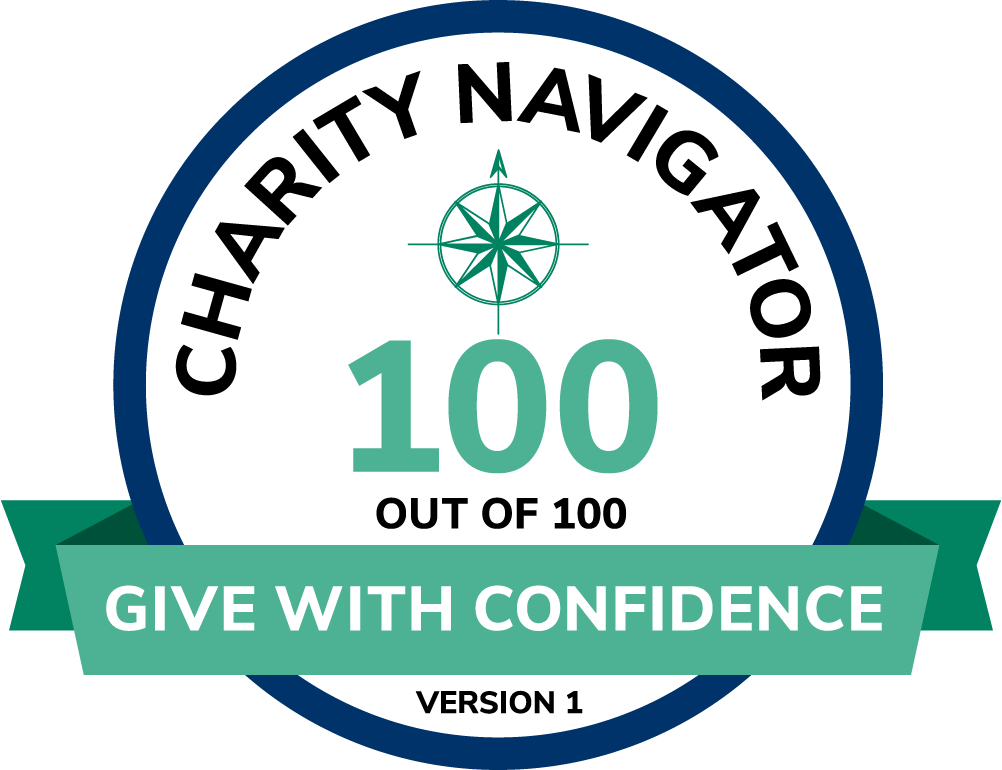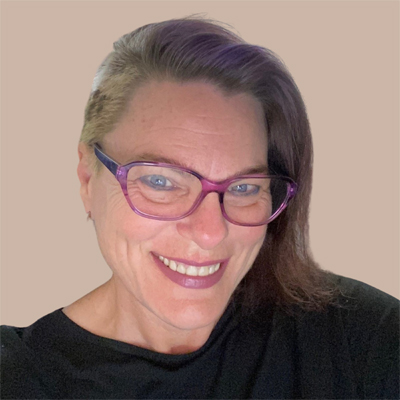World’s Children Pilot Program for Girl Health and Empowerment
Women are sharing their stories and speaking out about the stigma of menstruation. So in honor of women everywhere, we want to share this story with you about this World’s Children project for girl empowerment.
It began with Girl Health
Shobha Rani felt perplexed. The orphaned, adolescent girls under her care were benefiting from a new health program. But they still weren’t blooming into the confident young women they could be. The girls’ home administrator felt a piece of the puzzle had yet to be found.
Over one year ago, with the encouragement of World’s Children and a grant from the Rosie Center, Shobha introduced The Girl Fund (TGF) at Balavikasita Orphanage in south India. If the project proved successful there, World’s Children would seek funding to expand the program into more orphanages.
In India, there is a particular silence surrounding puberty and menstruation. Girls often don’t receive information or assistance to help them understand and cope with what’s happening when their bodies begin maturing.
At Balavikasita, the TGF was designed to deliver girls’ health education and better access to hygiene products, supplements and medical help. Ultimately, it delivered that plus more.
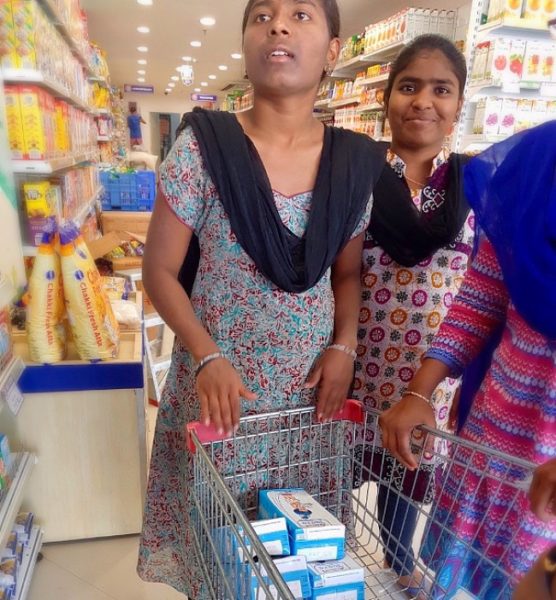
The girls at Balavikasita saw health professionals and learned what to expect from puberty, how their bodies were changing and the importance of adopting healthy eating habits.
They visited local markets to practice making nutritious food choices. They learned about consuming protein-rich and iron-rich foods; and they added more milk, fruits and eggs to their diets. Shobha also created “health camps” to track improvements and chart height and weight changes.
During the next few months, it became clear the girls were indeed getting healthier. The TGF had opened a door. Still, Shobha, whose background includes social work and counseling, felt only a portion of the potential benefits of the project were being achieved.
It gave rise to Girl Empowerment
There were clues that something was missing…
For instance, Shobha noticed an “attitude of timidity.” It seemed to be keeping the girls from participating in school programs and special events. They were shy around guests, too. And they retreated from displaying their talents in front of audiences. Additionally, small conflicts would quickly escalate into fights.
“The girls were losing opportunities because of their attitudes,” Shobha notes.
Of particular concern, she noticed that these smart girls—while accomplished in their studies—still were not strong decision-makers. Also, they were afraid to express their needs. Self-consciousness and a sense of shame seemed to hold them back.
If not for Balavikasita’s involvement with The Girl Fund, Shobha says staff might have overlooked how these clues were adding up. And they might not have envisioned what came next.
The Missing ‘Peace’
“We pondered upon the situation after talking to the girls and we concluded that just giving them good food, good education and good medical support is not enough. We also needed to focus on their personal growth and general well-being—in other words, develop their personalities.”
Out of that important “aha” moment came an idea. The Balavikasita team imagined that life skills sessions to promote the girls’ health and physical strength could be expanded to include sessions to boost the girls’ emotional strength, mental toughness and maturity.
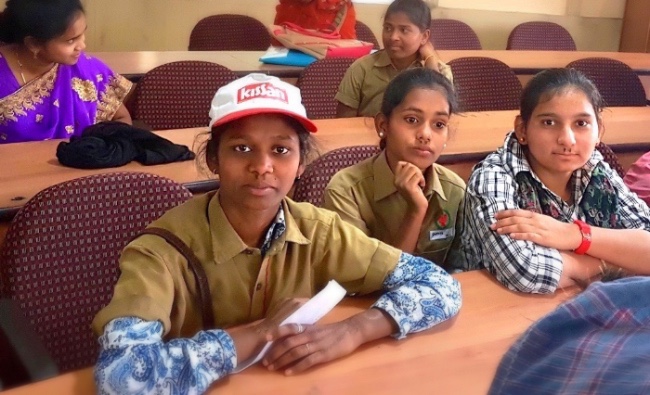
So they began adding new sessions under the name WINGS—Winning Initiatives for (Young) Girls. Aspects of the program include team-building, counseling and meditation.
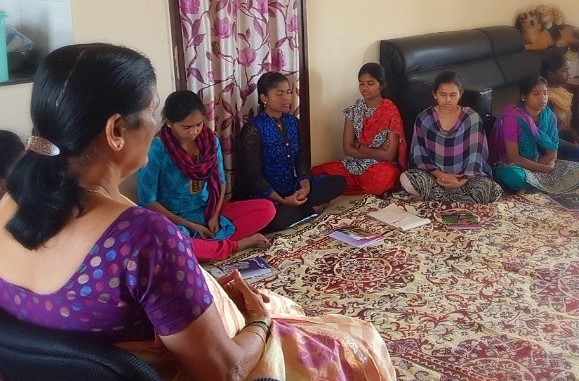
Meditation skills help the girls focus and cope with “the pressure of handling day-to-day issues,” Shobha says. The sessions build self awareness and self-acceptance—a sense of peace—so the girls can “overcome feelings of guilt, anxiety, depression and anger.” These are common concerns girls face in India and puberty can compound these issues.
In addition, the girls are encouraged to feel confident in voicing problems that they experience in everyday life. Staff members challenge the girls to find solutions to their issues themselves, whenever possible. Meanwhile, administrators offer one-on-one counseling sessions to help girls through more difficult issues.
A Team Effort
The girls also are learning to work more cooperatively in teams as part of WINGS. Peer leaders are trained to support girls on their teams and monitor their progress.
As the girls gain the strength to speak up, work together and resolve their own problems, they’re developing a greater sense of self-worth, too. “We are seeing good results,” Shobha says.
She credits World’s Children for its vision to make the project possible. “It gave us an insight on how important it is to nurture the girls for all-around growth,” she says.
As a result of the The Girl Fund and WINGS, the girls are maturing into more confident women and future leaders. These girls’ health and empowerment efforts will help them take action to remove the stigma of menstruation.
You can help bring this pilot project to more girls.


